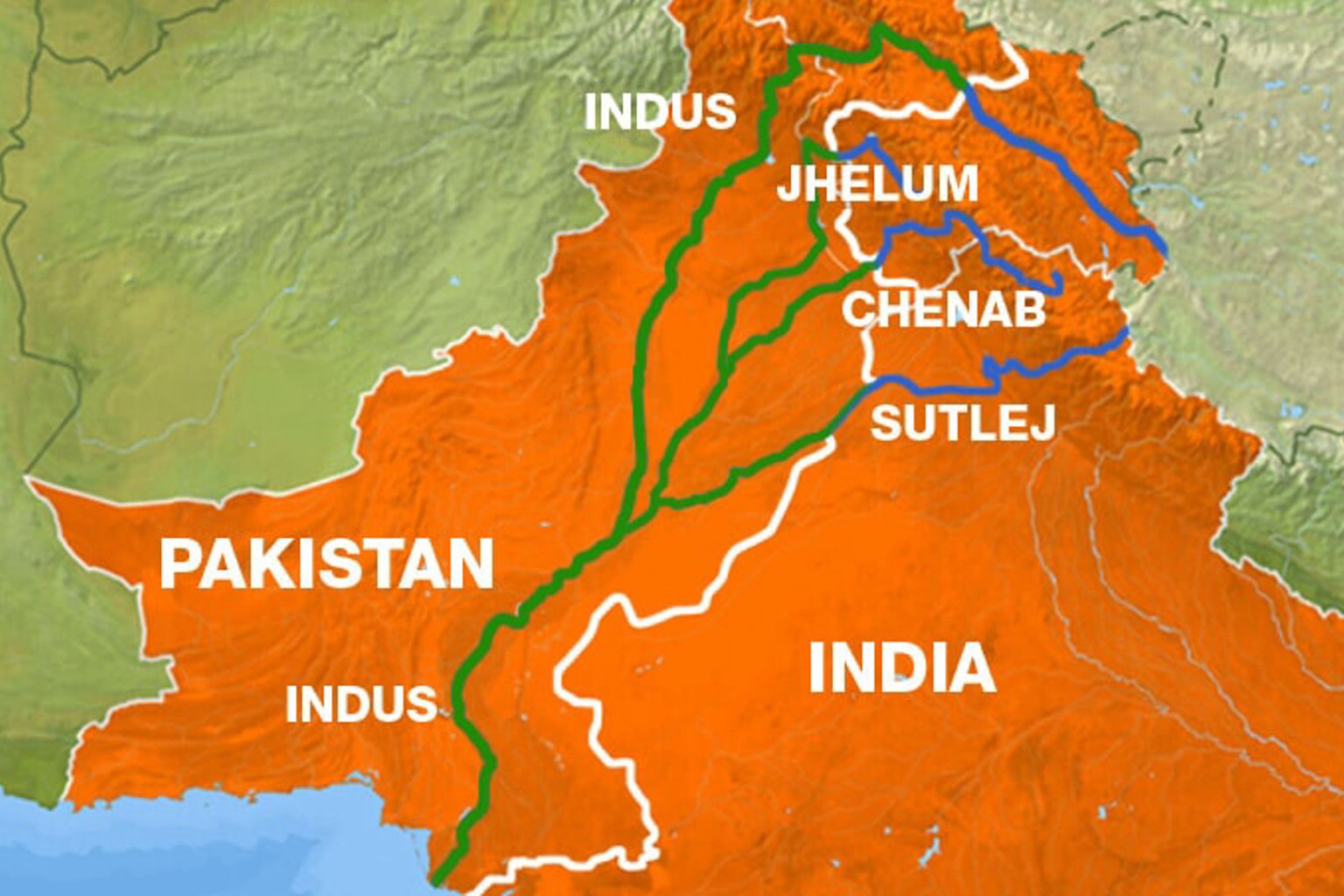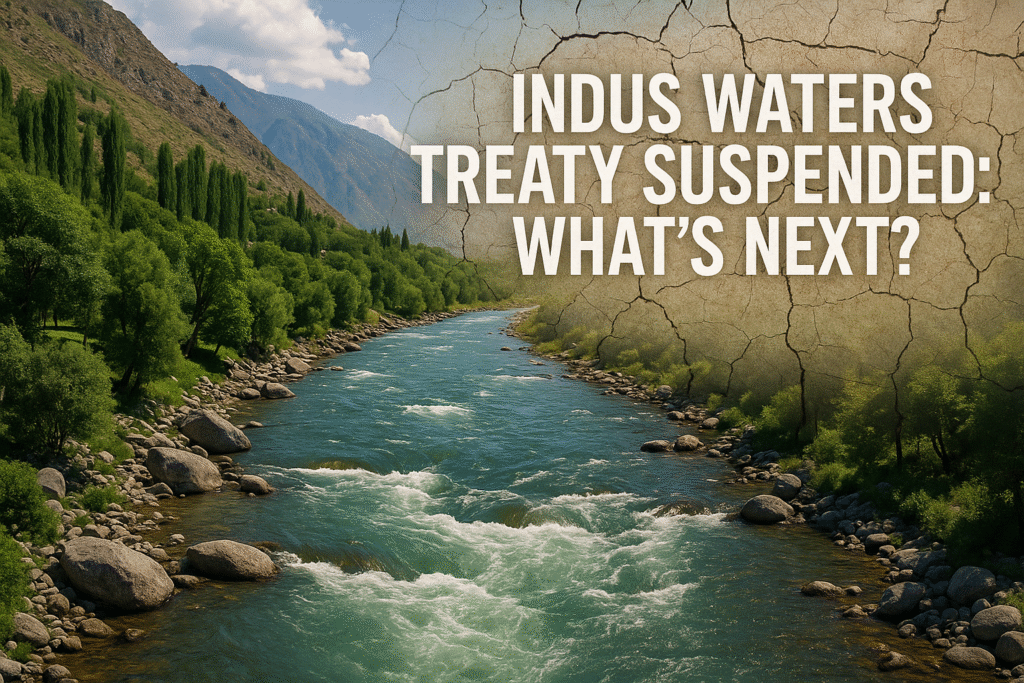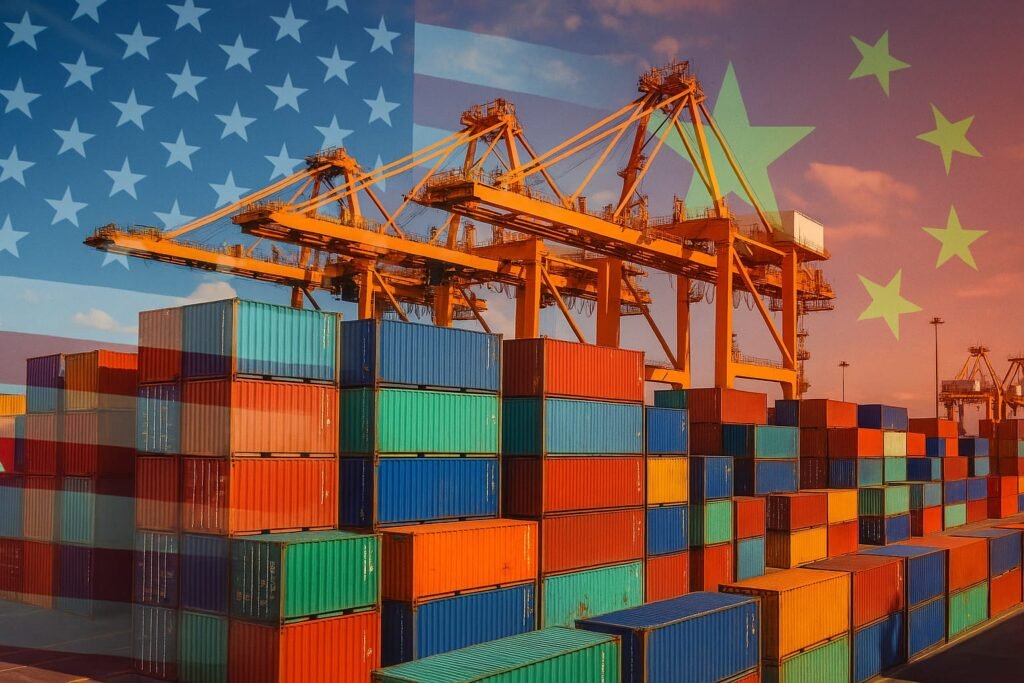Introduction: A Historic Treaty Under Strain
On April 23, 2025, India announced the Indus Waters Treaty suspension with Pakistan. This decision shocked South Asia. It followed the deadly Pahalgam terror attack in Jammu and Kashmir. So, tensions between India and Pakistan have escalated. The treaty, signed in 1960, ensured water-sharing cooperation. Now, its suspension raises concerns, especially for Pakistan. Pakistan relies heavily on the Indus River system. Let’s explore the history and impact of this move.
Learn more about India’s foreign policy shifts.
A Brief History of the Indus Waters Treaty
The Indus Waters Treaty, brokered by the World Bank, was signed on September 19, 1960, by Indian Prime Minister Jawaharlal Nehru and Pakistani President Ayub Khan. It aimed to resolve disputes over the Indus River system, which spans six rivers: Indus, Jhelum, Chenab, Ravi, Beas, and Sutlej. After nine years of negotiations, the treaty allocated the waters as follows:
- Eastern Rivers (Ravi, Beas, Sutlej): India received unrestricted use, totaling about 33 million acre-feet (MAF), or 20% of the system’s water.
- Western Rivers (Indus, Jhelum, Chenab): Pakistan was granted control over approximately 135 MAF, or 80% of the water, though India could use these for non-consumptive purposes like hydroelectricity.
This division made Pakistan a lower riparian state, heavily dependent on the Western Rivers for its survival. The treaty also established the Permanent Indus Commission for cooperation and dispute resolution, with a Neutral Expert process for technical disagreements. Despite wars and tensions, the IWT has largely held firm until now.

For more on the treaty’s framework, check out The Indian Express’s detailed explainer.
Why Pakistan Needs the Indus Waters Treaty
Pakistan’s economy and food security hinge on the Indus River system. Agriculture contributes nearly 25% to Pakistan’s GDP and employs 37% of its workforce. The Western Rivers—Indus, Jhelum, and Chenab—are lifelines for irrigating Punjab and Sindh, the country’s agricultural heartlands. Pakistan’s water storage capacity is limited, with major dams like Mangla and Tarbela holding only 14.4 MAF, or 10% of its annual water share under the treaty.
The Indus Basin Irrigation System (IBIS) is critical for Pakistan’s basic food security and water supply. Any disruption in water flow could devastate crops, exacerbate water scarcity, and reduce hydropower capacity, potentially leading to economic instability and humanitarian crises. As Al Jazeera notes, water allocation is already a political flashpoint within Pakistan, with provinces like Sindh fearing upstream diversions. Read more about Pakistan’s water challenges.
The Trigger: Pahalgam Terror Attack
The suspension of the IWT was announced following a brutal terror attack in Pahalgam, Jammu and Kashmir, on April 22, 2025. The attack, claimed by The Resistance Front (TRF), an offshoot of Lashkar-e-Taiba, killed 26 people, including one foreign national. India’s Cabinet Committee on Security (CCS), chaired by Prime Minister Narendra Modi, cited “cross-border linkages” to Pakistan as the reason for a series of punitive measures, including:
- Suspension of the Indus Waters Treaty: Effective immediately, India has halted cooperation under the treaty, freezing technical exchanges, project approvals, and data sharing.
- Closure of the Attari-Wagah Border: This key trade route has been shut down, further straining bilateral ties.
- Travel Ban: Pakistani nationals must leave India within 48 hours, and SAARC visa exemptions for Pakistanis have been canceled.
- Expulsion of Diplomats: Pakistani military advisors in New Delhi have been declared persona non grata, and India is withdrawing its advisors from Islamabad.
Foreign Secretary Vikram Misri emphasized that the suspension will remain in place until Pakistan “credibly and irrevocably abjures its support for cross-border terrorism.”

The Impact on Pakistan
The suspension of the IWT could have far-reaching consequences for Pakistan. Without guaranteed water from the Western Rivers, Pakistan faces:
- Agricultural Crisis: Reduced irrigation could devastate crops in Punjab and Sindh, threatening food security.
- Water Scarcity: Limited storage capacity means Pakistan has few options to manage shortages, potentially leading to humanitarian issues.
- Economic Instability: A decline in agricultural output and hydropower could cripple Pakistan’s economy.
- Diplomatic Fallout: Pakistan may seek intervention from the World Bank or the UN, though India’s stance is firm.
Former Indian diplomat Kanwal Sibal, who called for the suspension, argued that “blood and water can’t go together,” reflecting India’s resolve to respond strongly to terrorism.
What’s Next for India-Pakistan Relations?
The suspension of the IWT is a significant escalation, but it’s not the first time India has signaled discontent. In August 2024, India issued a notice to Pakistan seeking a review of the treaty, citing “fundamental and unforeseen” changes like terrorism and climate change. Pakistan has yet to respond formally.
For now, the ball is in Pakistan’s court. Prime Minister Mohammad Shehbaz Sharif has convened the National Security Committee to address the crisis, but diplomatic options are limited. India, meanwhile, appears to be leveraging its position as the upper riparian state to pressure Pakistan into addressing cross-border terrorism.
For a deeper dive into India’s strategic moves, visit NDTV’s coverage of the Pahalgam attack response.

Conclusion: A New Chapter in Water Diplomacy
The suspension of the Indus Waters Treaty marks a turning point in India-Pakistan relations. For Pakistan, the stakes are existential, as the Indus River system is its lifeline. For India, the move is a strategic response to terrorism, signaling that cooperation cannot coexist with violence. As the world watches, the future of water diplomacy in South Asia hangs in the balance.
What are your thoughts on this development? Share them in the comments below, and stay tuned for updates on this evolving story.
Want to dive deeper into global conflicts? Read my latest blog post on international relations: Read my latest blog post.


